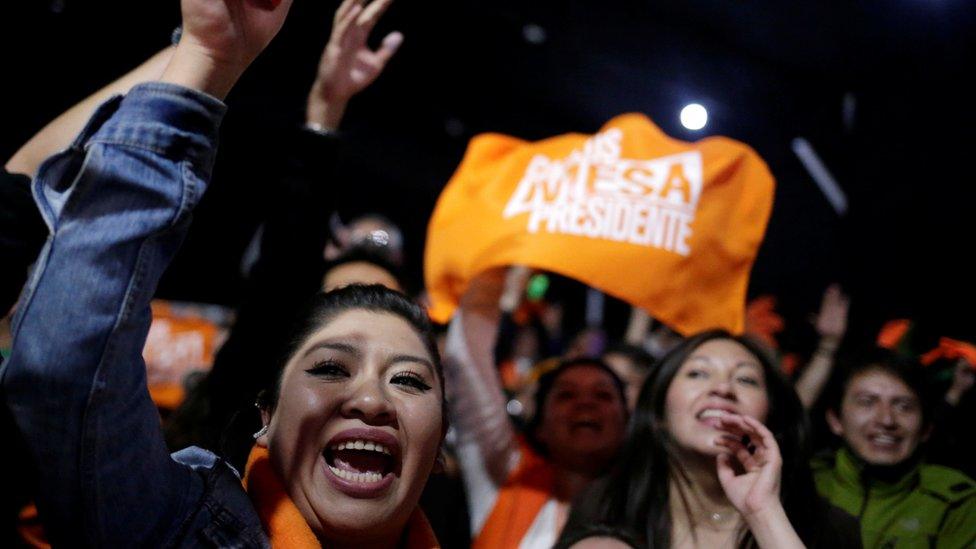Bolivia polls: Morales claims victory amid fraud claims
- Published
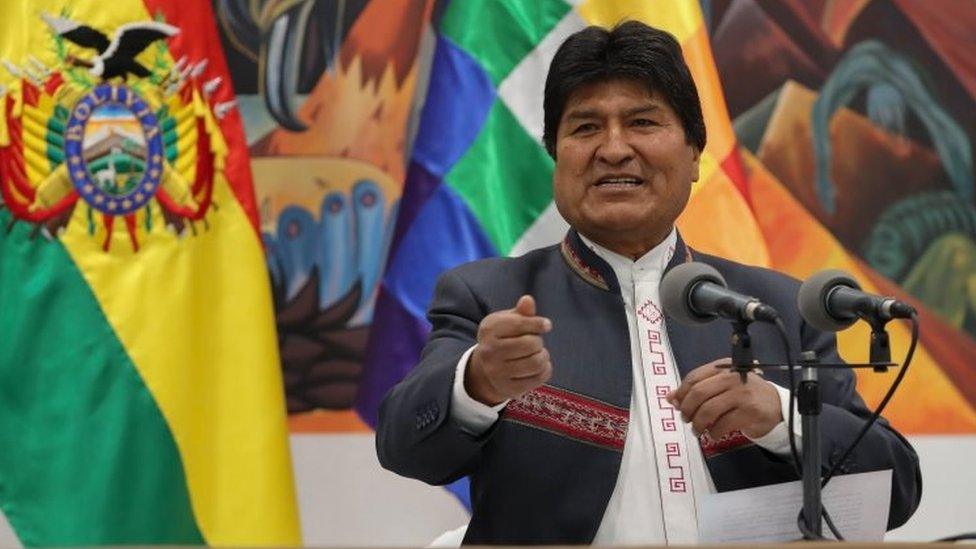
Evo Morales accused his rival of being "a criminal" who was trying to steal the election
Bolivia's incumbent president, Evo Morales, has claimed victory in the presidential election, saying that he has enough of a lead to stave off a run-off next month.
With 99% of the votes counted, his lead was just above the 10 percentage points he needs to win outright.
He said that if his lead were to drop, he would accept the result and go into a second round.
But he also accused rival Carlos Mesa of trying to "steal the election".
Mr Mesa had previously said that the vote count had been a "gigantic fraud" and had accused Mr Morales of trying to hold on to power illegally.
Electoral observers from the Organization of American States (OAS) have also expressed their concern.
Has Morales won or not?
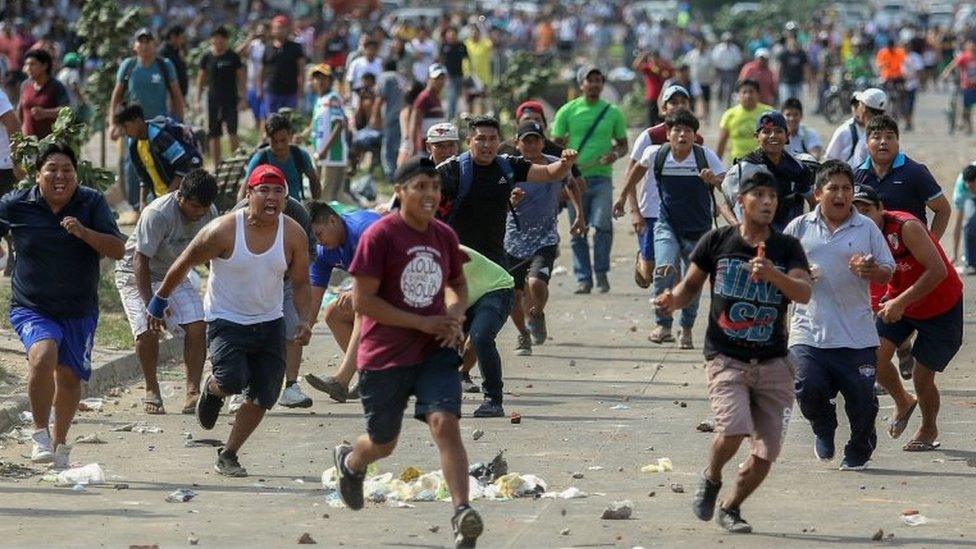
The uncertainty surrounding the vote count triggered protests in a number of cities
That gives Mr Morales a 10.35-percentage-point advantage, just above than 10 percentage points lead he needs to stave off a second round on 15 December.
But the electoral authorities have not yet declared a winner and not all votes have been counted yet.
What did Mr Morales say?
His speech on Thursday sent out mixed messages. On the one hand, he was defiant and called opposition candidate Carlos Mesa a "criminal" and accused him of orchestrating a coup d'etat against him.
He also accused the OAS observers of slandering him by expressing their concerns about the vote count.
The president added that if his lead were to drop below 10 percentage points, he would respect the result and go into a second round.
"If the final result says that there's a second round, then we go into a second round," he said. "And if the official count says that there is no round, we're going to respect that and defend that," he added.
Why is the 10-percentage-point lead important?
While Mr Morales, who has comfortably won the past three presidential elections, was always tipped to win the first round, Mr Mesa had hoped the difference between the two would be slim enough to warrant a second round.
13 years, 9 monthsin power
38 yearsleading the coca growers' union
54%of the votes won in 2005 election
64%of the votes won in 2009 election
61%of votes won in 2014 election

Mr Mesa calculates that his chances of winning in a second round would be higher, especially if those candidates who did not make it to the second round throw their support behind him.
Whether or not there is a second round could therefore well determine who will govern Bolivia for the next five years.
Why is tension running so high?
Hours after polling booths closed on Sunday, the Supreme Electoral Tribunal released the first results of the quick count.
At the time it looked like there would be a run-off, prompting celebrations in the campaign camp of Mr Mesa.
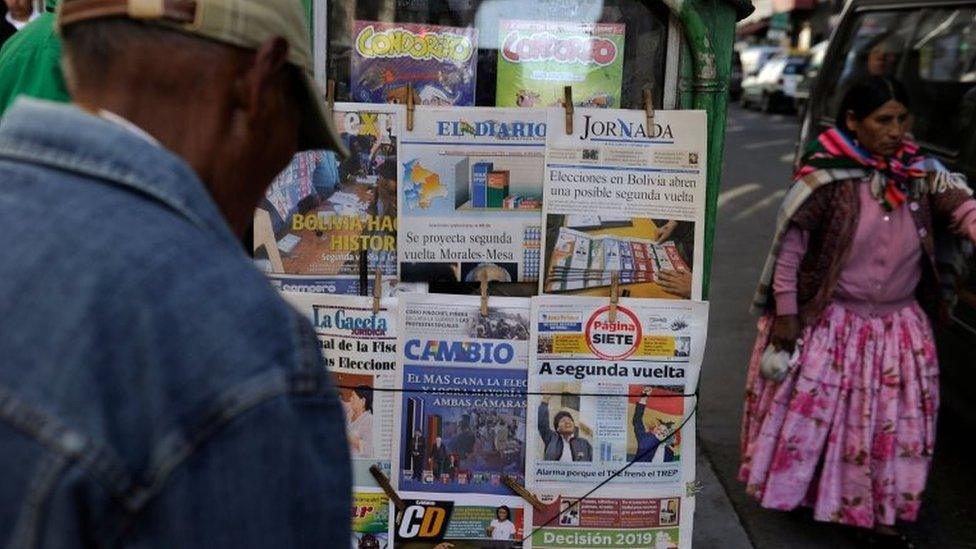
On Monday morning, newspapers led with news of a likely second round
But then the website with the quick count stopped being updated for 24 hours, prompting electoral observers from the Organization of American States (OAS) to express their concern.
When the quick count was finally updated on Monday evening, Mr Morales had a lead of 10.12 percentage points.
The OAS electoral mission called the change "drastic and hard to explain".
"We hope that the result of the final calculation will adhere to the will of the voters expressed at the poll," the OAS electoral observation mission said.
What's happened since?
The detailed count - rather than the quick count - of the votes has been proceeding very slowly with Mr Morales steadily widening his advantage over Mr Mesa.
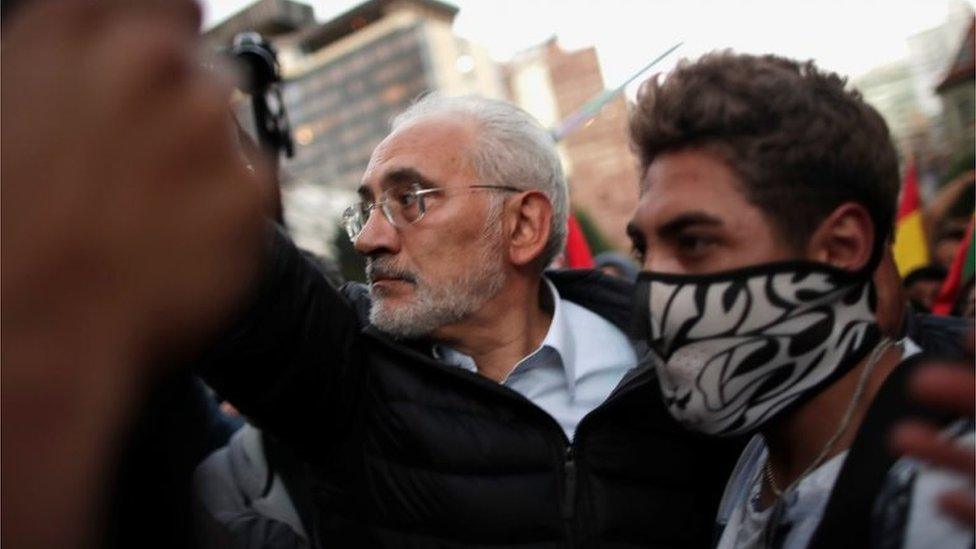
Opposition candidate Carlos Mesa (left) says the count is fraudulent
But after the mysterious delay in the quick count, many Bolivians say they have no more confidence in the electoral authorities.
The vice-president of the electoral board, Antonio Costas, resigned from his post saying the decision by the six-member panel to halt the quick count had been "foolish".
The United States, the European Union and Brazil have all expressed their concerns and the OAS recommended during an emergency meeting on Wednesday that a second round be held regardless of the result of the first round.
What's going on in the streets?
There have been protests and marches, some of which turned violent, in cities across Bolivia ever since the quick count indicates an outright win for Mr Morales.
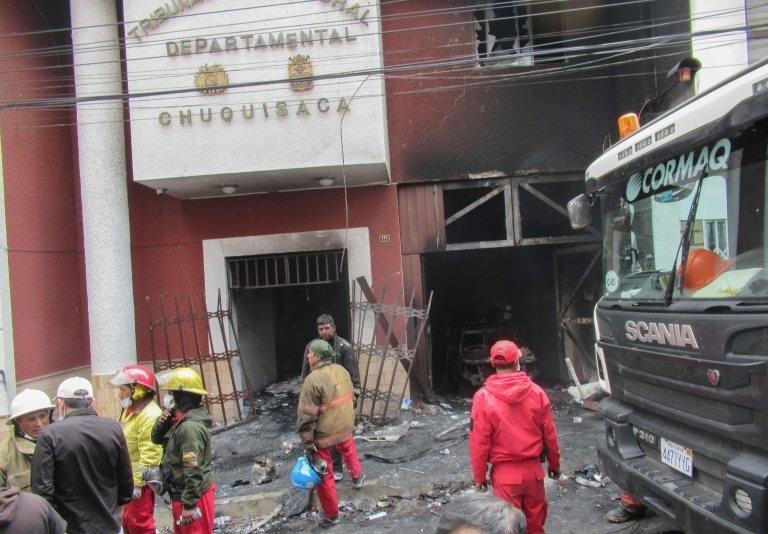
A number of electoral offices have been set alight
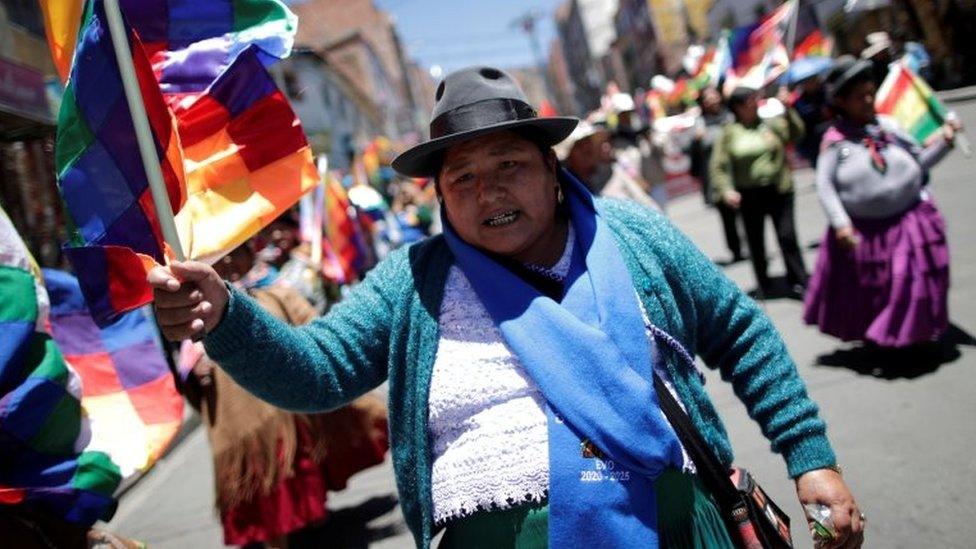
Supporters of Mr Morales have also taken to the streets to make their voices heard
A number of electoral offices have been set alight and opponents of Mr Morales launched a general strike on Wednesday.
Ballot boxes and electoral offices were set on fire by protesters
There have also been clashes between supporters and opponents of Mr Morales as well as marches in support of the president.
- Published22 October 2019
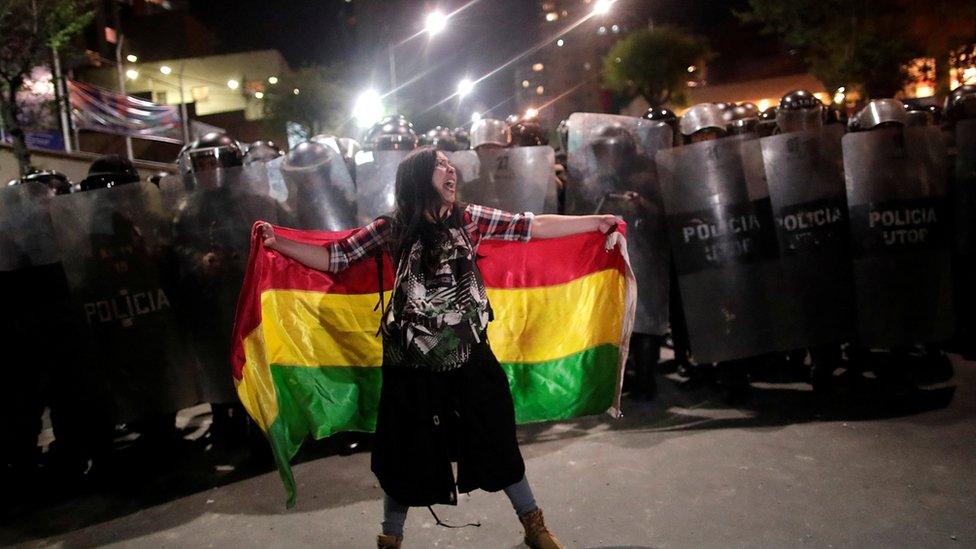
- Published21 October 2019
